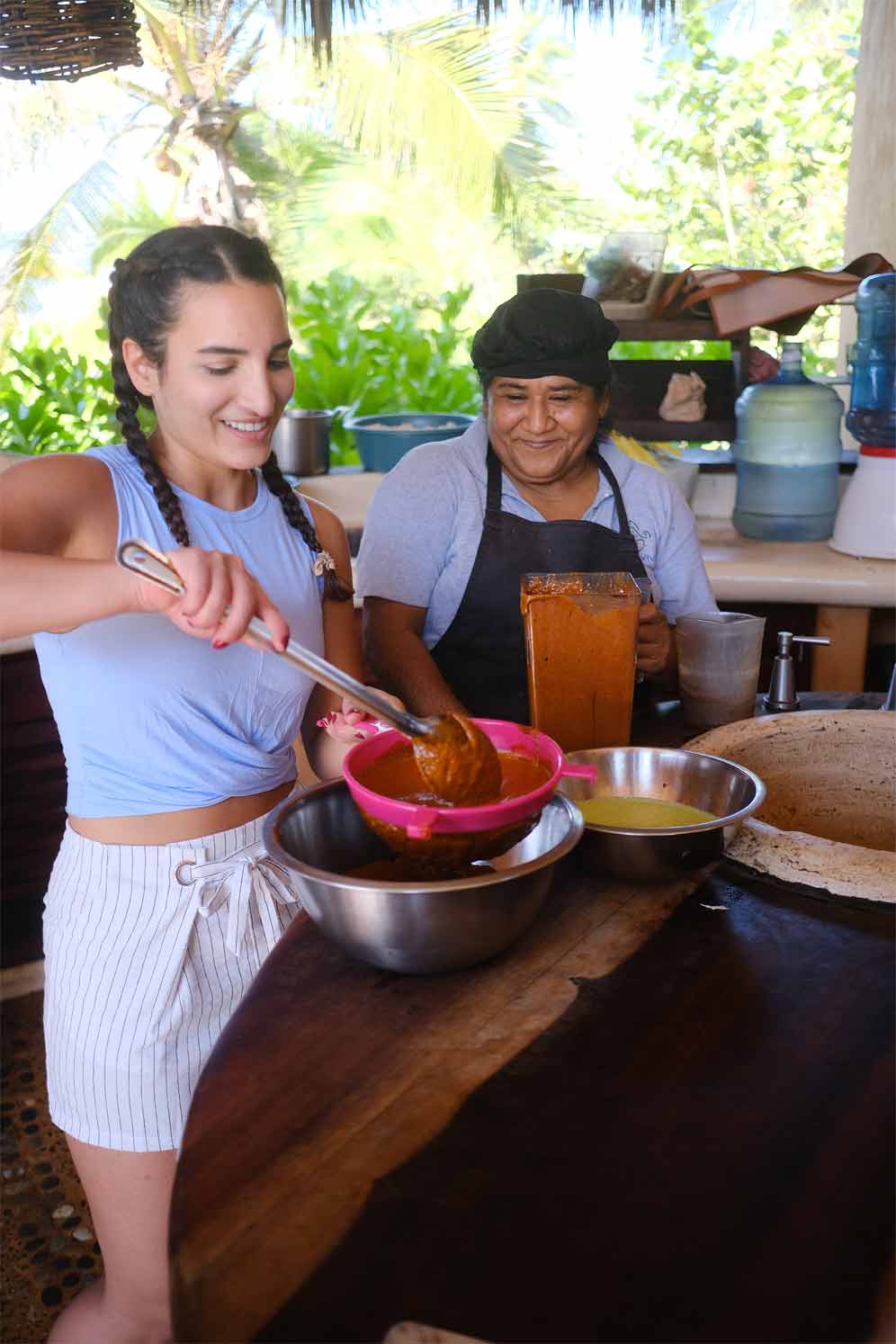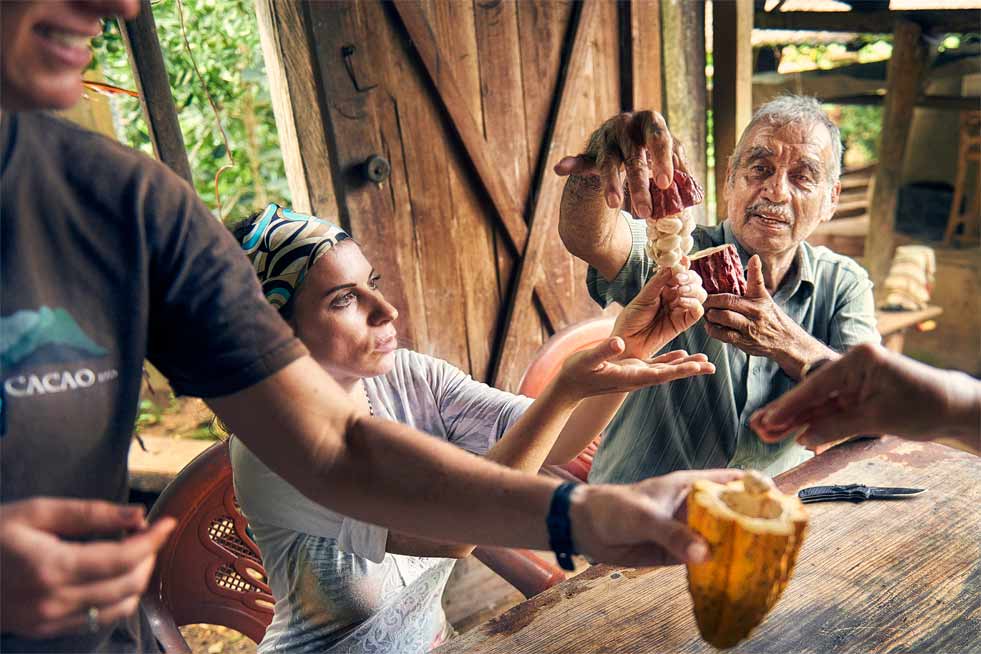This pandemic has begged the question, “Why do we miss travel?”
As a child, I did not travel much, except through what I saw on TV. I loved nature shows like The Undersea World of Jacques Cousteau and Mutual of Ohama’s Wild Kingdom with Marlin Perkin. Shows like this transported me to amazing places where I could see people interacting with nature and the communities around them. Movies, TV, and magazines were all my window to the greater, wider world. Pop culture first showed me what it meant to be a traveler.
Travel always seemed simultaneously nostalgic and exotic. Westerners (like me) would be wearing khaki safari gear as they arrived on the back of a camel or an elephant to the tent or the hut of someone who was completely different from the traveler themself. So while this was a kid’s view, it’s how I came to understand that cultures and people existed who were very different from my own.
Modern Travel & the Pandemic Stopgap
Today, travel is different. The pandemic has made person-to-person contact dangerous. In many ways it has been a great reset button because this break from traveling has allowed us to ask the question, “Why do we travel in the first place?”
Friends of mine who used to hop on a plane to attend a business meeting across the country are now asking me, “Why did I do that?” Many of us agree that it is important to be present, in person, to build trust and relationships. But now we can see how so much of our travel, especially for business, can be replaced by technology.
Meanwhile, this pandemic has given me an opportunity to connect deeper to where I live. It started with me going into my backyard and pulling weeds and tending to our garden. That activity grounded me as I got into a routine and rhythm of being home (a relative rarity for me). I began to connect to my neighbors, to my local community. As I walked the dog, I would meet neighbors who just got dogs, and as our dogs sniff each other, us “owners” would get to know each other too.
I’m sure like so many of you, this is the longest period of time you have spent in one place. Hopefully you were able to harvest the bounty of your own neighborhood.
The Host/Guest Relationship Element of Travel
Yet the question of “Why do we travel?” kept calling to me — returning to the front of my mind even as I enjoyed my time at home. And there is a part of that question that speaks to me so strongly: “What makes for a good host, and what makes for a good guest?”
My wife loves to host people. Our home has always been a “crash pad” for her friends and family — and now kids of friends and friends of friends. Some of those guests are “better” than others. What makes one better than another? Simple things. Some clean up when they cook; others leave a mess in the kitchen. Some arrive with just their luggage, and others appear bearing gifts. Some come for just a place to sleep, and others come to share their lives. The simple truth is that it takes being a host, hosting a lot of guests (bad ones and good ones), to know what it means to be a good guest. And of course it’s subjective.
In this exchange, this interaction, between guest and host, lies the truth behind why we travel. We travel to be good guests to the places we go. To reflect well on the families, communities and cultures we come from, and to learn about how other people live. To meet their families, understand their communities and learn from their cultures. This is what we are all missing from our lives right now. This connection and reflection.
Types of Travelers
I was recently invited to be a guest lecturer (over Zoom, of course) to a class at San Francisco State University on tourism to talk about our endeavors, Playa Viva and Regenerative Travel. I’ve guest lectured many times before and rather than speaking at students, I prefer to have a dialogue. Ideally engaging them on their level and having them approach me with tough questions.
This time around, I was immediately asked to describe our type of traveler. Who was our customer? Who was our guest? I recounted a story of how I sometimes wait at the airport to receive guests with Johnny, who takes guests to Playa Viva. I told the students how I could, by sight as people got off the plane, divide the arriving passengers into three groups. Group 1 will go directly from the airport to their hermetically sealed, all-inclusive resort and the most local, Mexican thing they will experience is an avocado on their cheeseburger. Group 2 will go to a hotel in town, and they will wander through tourist areas but still venture outside the hermetically sealed comfort of the all inclusive. Group 3 will stay in a hotel like Playa Viva. They will get out of the tourist area and will interact with locals on a one-on-one basis and get to know the local culture and how people really live in Mexico.
One student posed a question that concerned me. He asked, “What about the guy who takes one vacation a year? He saves all his money to take his family to Hawaii for a week. Doesn’t he deserve to just sit on the beach and drink his Mai Tai and enjoy his all-inclusive vacation?” I didn’t have the guts to tell him what I really thought. That the “guy” doesn’t need to go all the way to Hawai’i to have that experience. Nothing about his experience will be about Hawai’i. The person who serves him may not be from there. The hotel he stays in probably won’t be owned by a local Hawai’ian host. The luau and the dance might be billed as “authentic,” but the experience will be the same as going to a luau at Disneyland.
Why does that “guy” travel? He doesn’t have to be Jacque Coustaue or Karl Perkins. So how can we get that “guy” to push his reset button and get out of the comfort zone of the community-detached, all inclusive? How can we get him into the neighborhood and engaged in the essence of the place? To immerse himself in the local ecosystem and have a real cultural exchange with new peoples?
Why does that guy travel? Why do you travel? I travel to be a good guest. To arrive with a gift to share something of my culture with the locals. To sit with them and learn and share and tell stories. To go into their gardens, walk their neighborhoods, learn about their views and cultures, and share all that I can.
To me, that is what it means to be a Regenerative Traveler. That is why I travel. Please join me in not only being a good guest but in being a good host.




